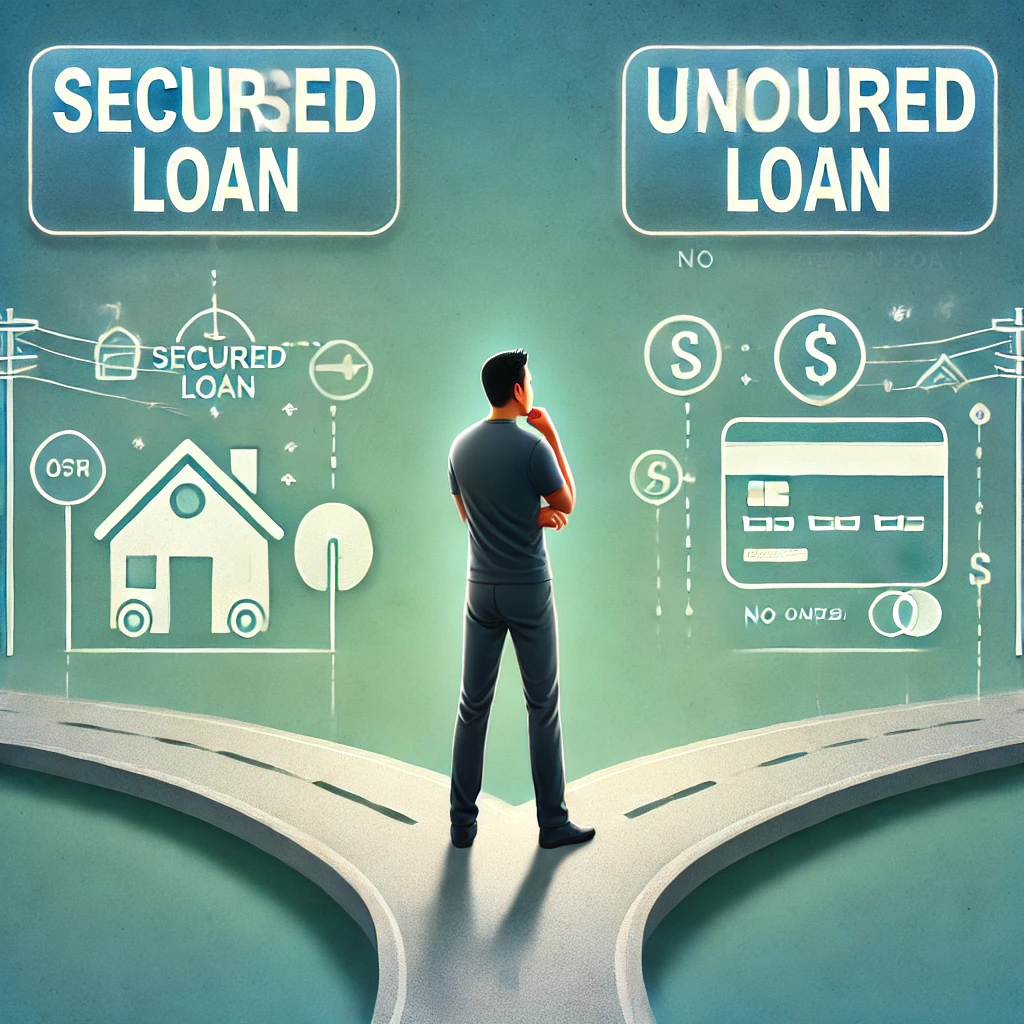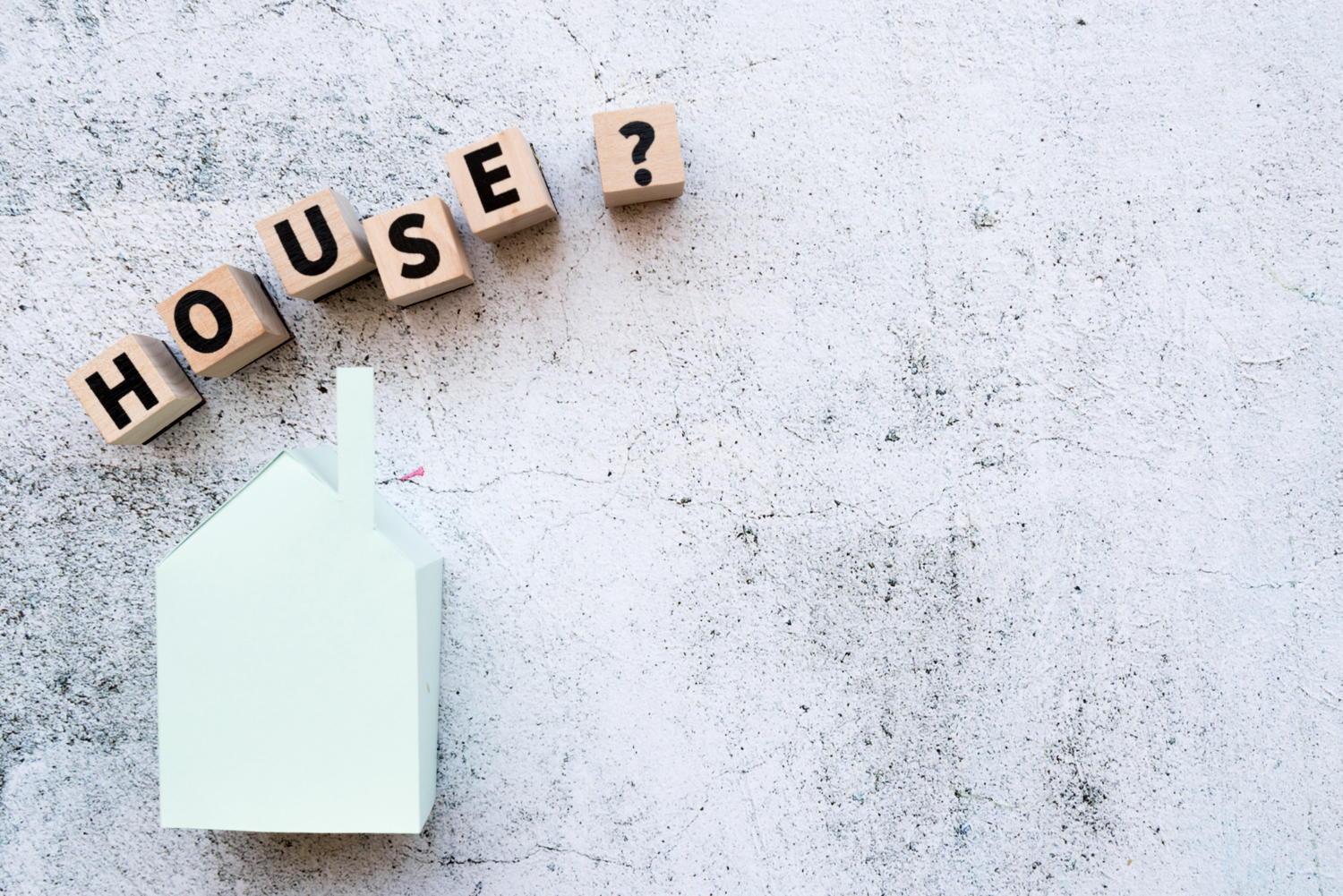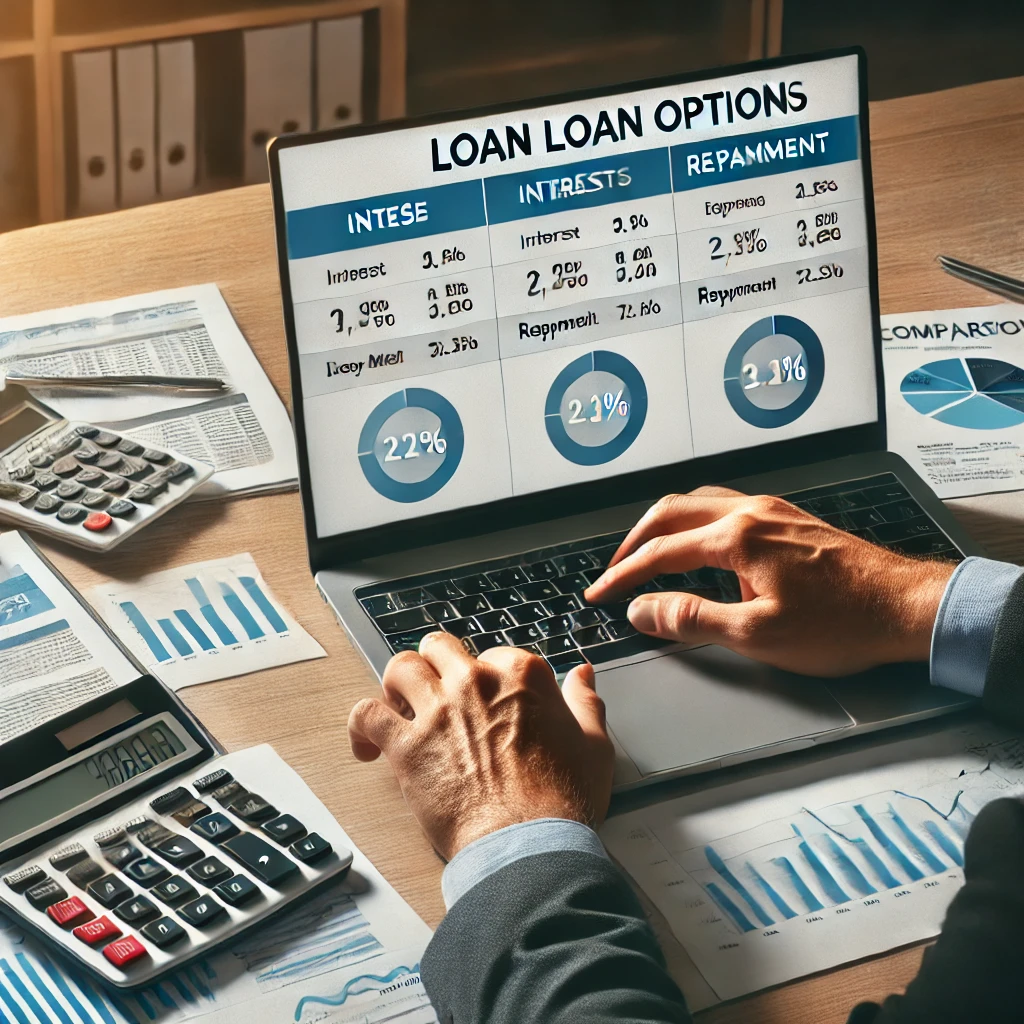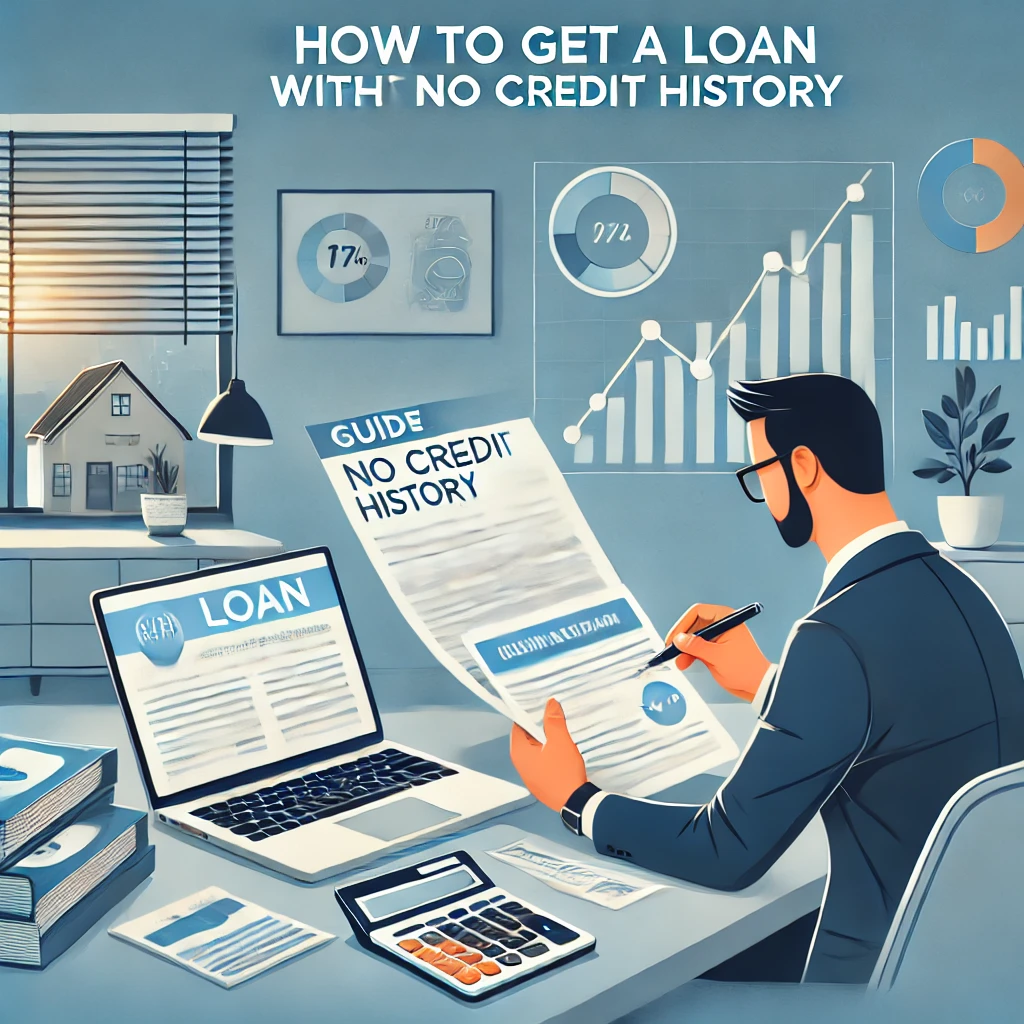When it comes to borrowing money, one of the most important decisions you’ll face is choosing between a secured loan and an unsecured loan. Both options have distinct advantages and drawbacks, but the right choice depends on your financial situation, goals, and risk tolerance. In this article, we’ll break down the differences between secured and unsecured loans, offer insight into how each works, and help you make an informed decision.
What is a Secured Loan?
A secured loan is a type of financing that requires the borrower to offer collateral as security for the loan. Collateral can be a tangible asset like a car, home, or savings account, which the lender can seize if the borrower defaults on the loan. Because the loan is secured by an asset, lenders typically offer lower interest rates and higher borrowing limits.
Secured loans are common for large purchases, such as mortgages or auto loans. The lender’s ability to recover the loan amount through the asset reduces their risk, which is why interest rates are usually more favorable. However, if the borrower cannot make repayments, they risk losing the asset tied to the loan.
What is an Unsecured Loan?
Unlike secured loans, unsecured loans do not require collateral. Instead, lenders base their decision on the borrower’s creditworthiness, income, and financial history. Since there’s no asset for the lender to claim if the loan goes unpaid, unsecured loans generally come with higher interest rates and lower borrowing limits.
Common examples of unsecured loans include personal loans, credit cards, and student loans. While the absence of collateral may make unsecured loans less risky for borrowers in terms of asset forfeiture, they usually require a strong credit score to obtain favorable terms.
Understanding the Key Differences Between Secured and Unsecured Loans
Choosing between a secured and unsecured loan requires an understanding of their key differences. While both offer avenues for borrowing, they cater to different needs and financial profiles.
- Collateral Requirement: Secured loans require collateral, while unsecured loans do not.
- Risk: Secured loans pose a risk to your assets, while unsecured loans depend solely on your credit.
- Interest Rates: Secured loans often have lower interest rates compared to unsecured loans.
- Loan Amount: Secured loans typically allow larger borrowing amounts than unsecured ones.
- Approval Process: Unsecured loans often have stricter eligibility requirements, primarily focusing on your credit score.
Knowing these distinctions is crucial in determining which loan type best suits your current financial standing and objectives.
Advantages of Secured Loans
There are several notable benefits to choosing a secured loan, particularly for borrowers with limited credit histories or those seeking lower interest rates.
- Lower Interest Rates: Since the lender assumes less risk due to the presence of collateral, secured loans often come with significantly lower interest rates than their unsecured counterparts.
- Higher Borrowing Limits: If you need a large loan—perhaps for a home or a vehicle—a secured loan may be the best option because lenders are more willing to offer larger sums when they have collateral as a backup.
- Easier Approval Process: For individuals with less-than-perfect credit, a secured loan may be easier to obtain because the lender has an asset to fall back on if the borrower defaults.
- Flexible Repayment Terms: Secured loans often come with longer repayment periods, allowing borrowers to spread their payments out over time.
However, while secured loans offer many advantages, the risk of losing your asset in the event of non-payment is a significant consideration.
Advantages of Unsecured Loans
Unsecured loans offer several benefits that may appeal to borrowers who prefer not to risk any of their assets.
- No Collateral Required: The most obvious benefit is the lack of collateral. Borrowers don’t need to put up their homes, cars, or other assets as security.
- Quicker Application Process: Without the need to assess the value of collateral, unsecured loans often have a quicker application and approval process.
- No Risk to Personal Assets: If you can’t repay an unsecured loan, your assets aren’t directly at risk. Instead, your credit score will suffer, and the lender may take legal action, but you won’t lose a house or car.
For borrowers with strong credit scores and steady income, unsecured loans can be a viable option, especially for smaller sums or short-term financing needs.
When Should You Choose a Secured Loan?
There are specific situations where a secured loan may be the best choice. If you need to borrow a large sum, such as for purchasing a home or refinancing debt, a secured loan is often the most practical solution. Additionally, if your credit score is on the lower end, a secured loan may offer the most affordable interest rates.
For example, if you’re planning to buy a home, a mortgage—essentially a secured loan—is the standard choice. Since the house itself acts as collateral, lenders are willing to offer competitive rates and terms. The same goes for auto loans, where the vehicle serves as security for the loan.
Also, individuals looking to consolidate debt with lower interest rates may turn to secured loans. Using an asset like a home as collateral can significantly reduce the interest paid over time, even if it does involve some risk.
When Should You Choose an Unsecured Loan?
Unsecured loans may be the better choice if you’re looking for short-term financing, have a strong credit score, or simply don’t want to put up any assets as collateral. Personal loans for small to medium-sized expenses, such as home improvements or consolidating credit card debt, are often unsecured.
An unsecured loan is also ideal if you’re confident in your ability to repay the loan without putting any of your assets at risk. Borrowers with high credit scores, in particular, can often secure favorable terms, even though the interest rates tend to be higher than those of secured loans.
If you’re borrowing a smaller amount and prefer a faster application process, an unsecured loan can be the most convenient option.
Secured Loans vs. Unsecured Loans: Which Is Cheaper?
When it comes to cost, secured loans generally offer a more affordable option due to their lower interest rates. Since collateral reduces the lender’s risk, they are willing to charge less for borrowing. For example, the interest rates on secured loans, such as mortgages or auto loans, are typically much lower than those on credit cards or personal loans.
However, cheaper isn’t always better. While unsecured loans tend to carry higher interest rates, they come with the advantage of not risking your assets. Depending on your financial stability and needs, paying a bit more in interest for the security of your assets might be worth the cost.
The Role of Credit Score in Choosing Between Secured and Unsecured Loans
Your credit score plays a significant role in determining the type of loan you can access. For secured loans, credit requirements are often more lenient since the collateral provides lenders with extra protection. This makes secured loans accessible to a broader range of borrowers, including those with less-than-perfect credit.
Unsecured loans, on the other hand, place more emphasis on your credit score. Lenders are assuming more risk, so they need to ensure you have a solid history of making payments on time. As a result, only borrowers with good to excellent credit scores typically qualify for the best unsecured loan rates and terms.
Assessing the Risks of Secured and Unsecured Loans
Every loan comes with its own set of risks. With secured loans, the primary risk is losing your collateral if you default. This could mean foreclosure on your home or repossession of your car. That’s why it’s crucial to assess your ability to repay before committing to a secured loan.
Unsecured loans, while not directly tied to any of your assets, can damage your credit score if you fail to make timely payments. In extreme cases, lenders may take legal action, which could result in wage garnishment or other consequences.
You can also read; How to Get a Loan with No Credit History
Which Loan is Best for Debt Consolidation?
Debt consolidation is a common reason for taking out a loan, and both secured and unsecured loans can serve this purpose. Secured loans, like home equity loans or lines of credit, often offer lower interest rates, making them attractive for consolidating high-interest debt. However, they come with the risk of losing your home if you can’t repay the loan.
Unsecured loans, like personal loans, provide a way to consolidate debt without risking any assets. However, the higher interest rates may not make them the most cost-effective solution. In this case, your credit score will largely determine which option is more suitable.




